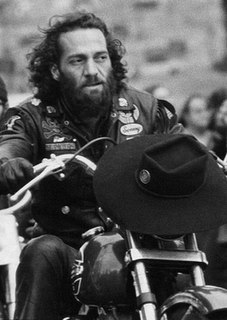A Quote by Michelle Alexander
Most Americans violate drug laws in their lifetime, but the enemy in this war has been racially defined. Not by accident, the drug war has been waged almost exclusively in poor communities of color, even though studies have consistently shown - for decades - the people of color are no more likely to use or sell illegal drugs than whites.
Related Quotes
The War on Drugs is a war on people, but particularly it's been a war on low-income people and a war on minorities. We know in the United States of America there is no difference in drug use between black, white and Latinos. But if you're Latino in the United States of America, you're about twice as likely to be arrested for drug use than if you're white. If you're black, you are about four times as likely to be arrested if you're African American than if you are white. This drug war has done so much to destroy, undermine, sabotage families, communities, neighborhoods, cities.
We started America with the sin of slavery that led right into the post-reconstruction period which was the greatest period of domestic terrorism in our country's history. Then after that, we had Jim Crow emerge and just when the Jim Crow laws were ending came the onslaught of the drug war. Well, the drug war has so perniciously effected, insidiously infected communities of color that in some ways it has come full circle, and we now have more African Americans under criminal supervision than all of the slaves in 1865. This is a profoundly unjust war.
[T]ake the war on drugs. The average American says, "The war on drugs has been beneficial." The rest of us see reality. This war has destroyed thousands of Americans. It is also a pretext for government agents to rob innocent people in airports and on the highways - they seize and confiscate large amounts of cash and say to their victims: "Sue us if you don't like it." And more and more judges, politicians, intelligence agents, and law-enforcement officers are on the take - as dependent on the drug-war largess as the drug lords themselves.
Drug companies spend more on advertising and marketing than on research, more on research on lifestyle drugs than on life saving drugs, and almost nothing on diseases that affect developing countries only. This is not surprising. Poor people cannot afford drugs, and drug companies make investments that yield the highest returns.
I have spent years representing victims of racial profiling and police brutality and investigating patterns of drug law enforcement in poor communities of color - and attempting to help people who have been released from prison attempting to 're-enter' into a society that never seemed to have much use to them in the first place.
Take crack cocaine. Particularly in the early days of the policy, ninety percent of the people being arrested were black, even though they didn't use the drug at higher rates and even though their numbers in the general population are so low. How could that be? The thing is, you place all your resources in communities of color. And if you do that, you're going to arrest black people.
One of the reasons that so many people of color and poor people are in prison is that the deindustrialization of the economy has led to the creation of new economies and the expansion of some old ones – I have already mentioned the drug trade and the market for sexual services. At the same time, though, there are any number of communities that more than welcome prisons as a source of employment. Communities even compete with one another to be the site where new prisons will be constructed because prisons create a significant number of relatively good jobs for their residents






























